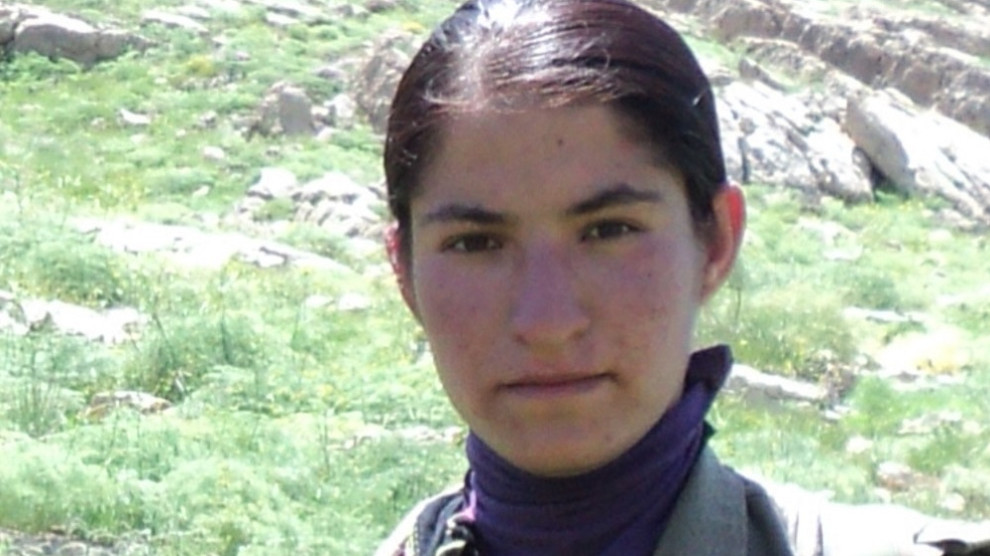"Bound to the memory of our fallen comrades till our last breath"
Guerrilla fighter Deniz Derya shares her memories with her comrade Ruken Şirnak who fell in 2011. " Ruken has always been a source of morale for our unit," she says.
Guerrilla fighter Deniz Derya shares her memories with her comrade Ruken Şirnak who fell in 2011. " Ruken has always been a source of morale for our unit," she says.

Female guerrilla fighter Ruken Şirnak (Heybet Güngen) from YJA-Star (Free Women’s Troops) was born in the Şırnak region of North Kurdistan. Şırnak has a long and deep-rooted tradition of resistance and Ruken is an early witness of the oppression by the Turkish regime.
Ruken stood up against the Turkish colonial power yet in her childhood and thus gained authority among her fellow men at an early age. As early as the 1980s, women joined the guerrilla struggle in the Botan region. From then until today, the participation of women in the guerilla ranks has increased. Ruken also followed this path and joined the guerilla in 2010.
Deniz Derya tells the following about her comrade: "After joining the training for new fighters, Ruken came to the Jirka area on Mount Kato. We fought there in the same unit. She was young and not one of the most conscious, but she had a wonderful spirit. She was very mature. She was a source of morale in our unit. Especially on an organizational level she tried to develop herself further and further. During the organizational analyses and the discussions about the Chairman's analyses, she always amazed everyone with her questions. She was one of those who always tackled the everyday work first. She was very much loved by her comrades because of these qualities.”
The people were very impressed by her
Deniz Derya emphasizes that Ruken distinguished herself in military matters as well: "Ruken also took part in actions. Once she went off with her friends Rojhat and Azad to set an ambush against an enemy convoy. Then they saw that there were security forces on the road and decided that it would be better to hit them instead. Many soldiers were killed in the action. But afterwards Azad was injured. They did not know the terrain well enough. They also did not know the locations of the enemy that actually controlled a large area. When Azad was injured, she told the other comrades to leave saying that she would continue the fight.
The enemy had created a C-shaped ambush. It was very difficult to break through this ambush. This way they engaged in combat with the enemy two or three times. They overran two or three enemy positions, but they couldn't break through the last ambush. Ruken fought to the last round and then blew herself up with a hand grenade. This was in the Setka area of Kato-Jirka. Ruken fell bravely in battle at a young age. This death shows the attitude that pervaded her life.
It was 2011. Her death greatly affected the comrades in the unit. She was the backbone of our unit. The people of the region were also very much impressed. We saw that even those who were against us were impressed. The resistance of such a young guerrilla fighter amazed them. The comrades killed 17 or 18 soldiers during that action. Since the army did not want to accept this, they tied Ruken's body to an armored vehicle and dragged it to the centre of Beytüşşebap. Their aim was to intimidate the people. But her resistance impressed the people more than what the enemy did afterwards. We as their brothers and sisters in arms will keep their memory alive until our last breath."